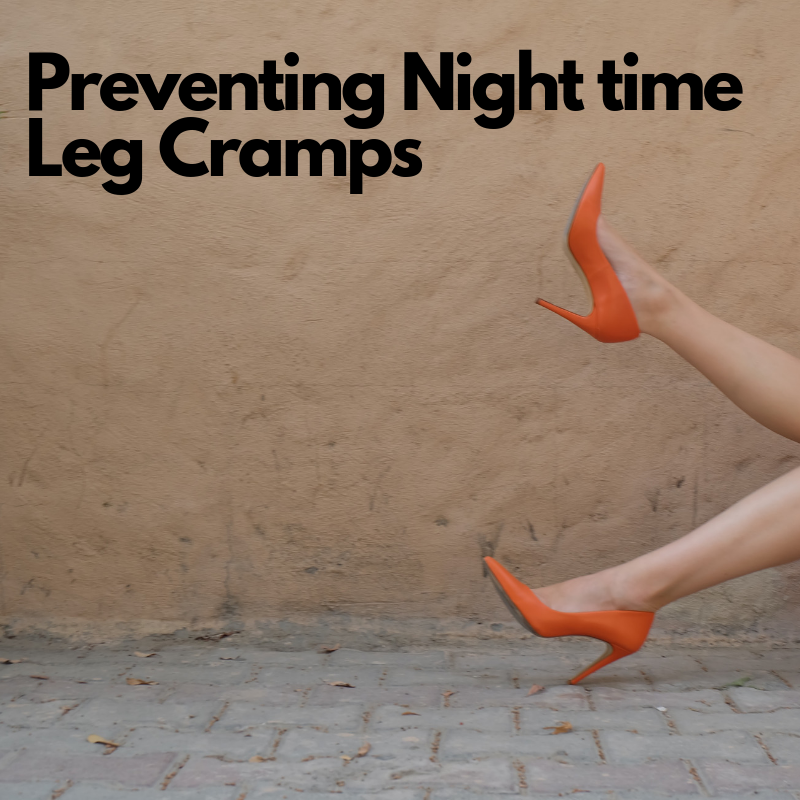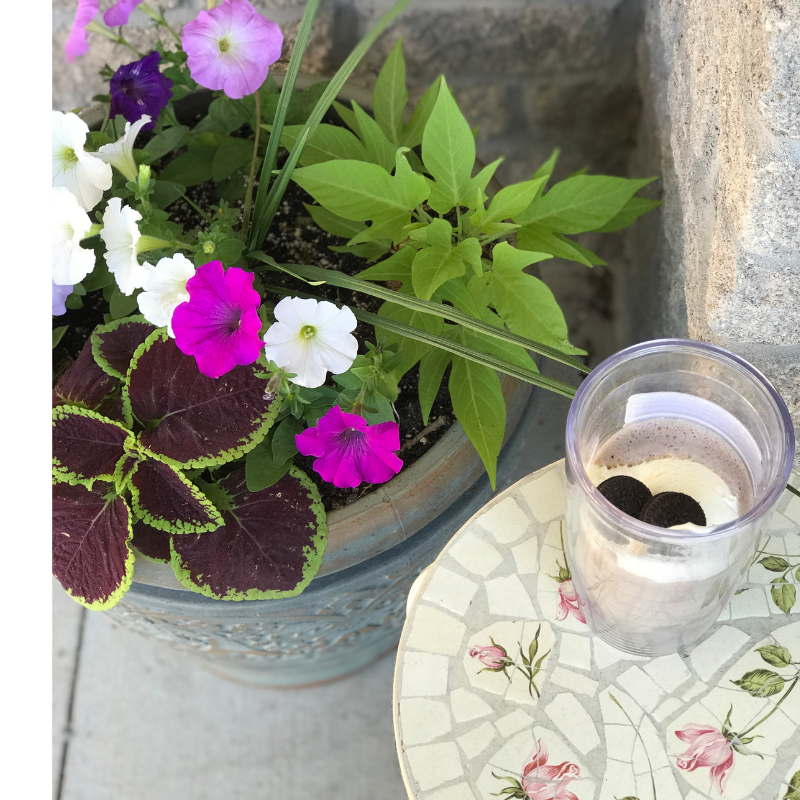
How to End Painful Night-time Leg Cramps Now
Have you ever had one of those nights where you wake up with a pain in your calf that simply won’t go away? Trust me, I know your pain. Painful night-time leg cramps are common here. Every few weeks I bolt out of bed at night and have to walk out that painful knot. I’ve tried sleeping through it or massaging the calf, but once it wakes me up the only way to stop it seems to be the walk about.
Strangely this is one odd health quirk I think I inherited from my Mom. I still remember her bolting out of bed at least once a week with painful night-time leg cramps. Poor woman never got a decent rest!
Pain in the calf or foot can cause you to wake quickly to get relief, interfering with rest on a regular basis. The causes of leg cramps in the night are varied, but some simple remedies can help.

Table of Contents
Scientific Theories About Leg Cramps
Because leg cramps occur when people are dreaming, some researchers speculate that the brain somehow confuses dream movements with real ones and causes cramps. But the majority of scientists believe there’s no connection to nerve and brain tissue and that the problem is caused by dehydration, electrolyte imbalance, or vitamin deficiency in the leg muscles. Drinking a large glass of water every three or four hours while awake will ensure that leg muscles are well-hydrated.
The Role of Minerals in Leg Cramps
Mineral deficiencies and dehydration are known to contribute to nocturnal leg cramps. Some medicines that treat liver disease, heart disease and high blood pressure can cause potassium, an electrolyte mineral, to be depleted; the resulting imbalance can cause leg cramps. Frequently an imbalance of Calcium, needed to contract muscles, and Magnesium, needed to relax muscles, is at work when leg cramps become a problem.
Drinking cow’s milk to replace calcium is a controversial remedy. Because it contains high amounts of phosphorous, milk can sometimes make leg cramps worse. Some milk drinkers report that a glass of milk at bedtime has helped, however.
Where to Get Calcium?
Dark green leafy vegetables and fish are good sources of calcium, or use a supplement that is a citrate or chelated form. Magnesium is found in Brazil Nuts but can also be taken as Milk of Magnesia. The balanced formulas available in health food stores will work, too. I take a calcium and magnesium vitamin supplement for leg cramps and it seems to work as long as I remember to take it.
Does Potassium Impact Leg Cramps?
Potassium affects muscles, including the heart, so ask your doctor if you need to take it in supplement form. It is perfectly safe to increase dietary Potassium, however. Potassium rich foods are oranges, potato peelings, dates, bananas and cantaloupe. Vitamin D deficiency can also cause nighttime leg cramps. Follow label directions when taking supplements.
Poor Circulation Can Cause Leg Cramps
Take Brewer’s yeast, one Tablespoon a day, for B vitamins that increase circulation. Vitamin E and Coenzyme Q10 are especially good if varicose veins are a problem, or if you take statin drugs to lower cholesterol.
Exercise is the best way to improve circulation. Pedaling a stationary bicycle for an hour before bed can eliminate cramps. Doing push-ups or lunges against a wall will stretch the calves so that there is less likely to be a rebound cramp.
A hot bath before bed also increases circulation, and a hot water bottle treats pain.
When a cramp hits, instead of jumping up to stand on it, straighten the knee and pull the toes toward the nose. This action lengthens the calf and immediately brings relief.

Herbs and Other Medications to Help Night-time Leg Cramps
Valerian and Skullcap are two herbs that relax muscles, promote sleep and reduce pain of night-time leg cramps. Use capsules or tinctures and follow label directions. Valerian sometimes has an odour that may take some getting used to. Remember: always check with a doctor before adding herbals if you take prescribed medicines.
Can you believe quinine was once the medicine of choice to treat nocturnal leg cramps. But the FDA banned it. Reports of serious side effects relegated it to prescription status. Over the counter diphenhydramine, an antihistamine and sleep aid, has been used, but may not appropriate for some conditions, so ask your doctor.
If you have sleep issues you may want check out this post about Melatonin.
A combination of strategies is most likely to produce a good night’s sleep.
Please note I am not a doctor. This is advice from my own experience and from research I have done. This post may also contain affiliate links as a service to readers.




